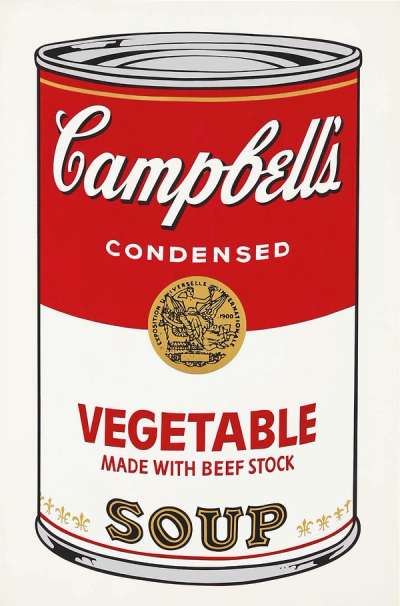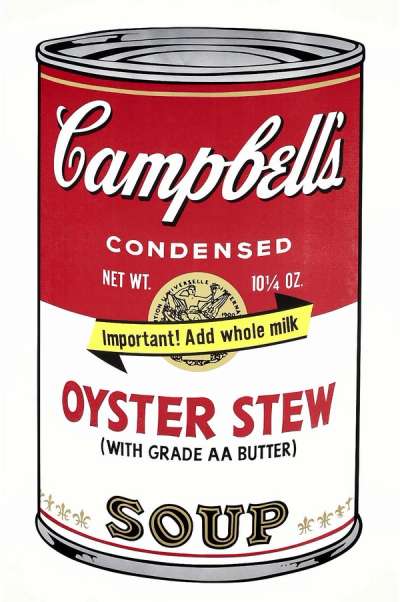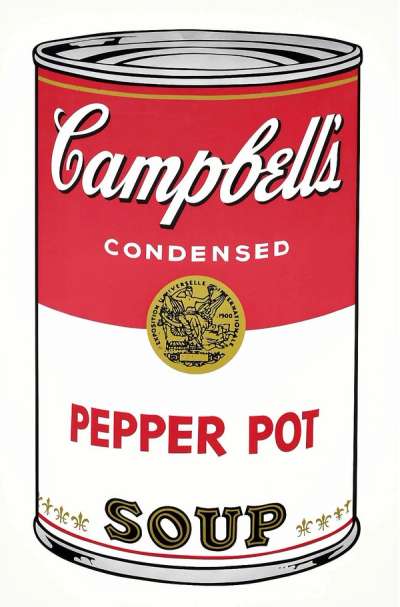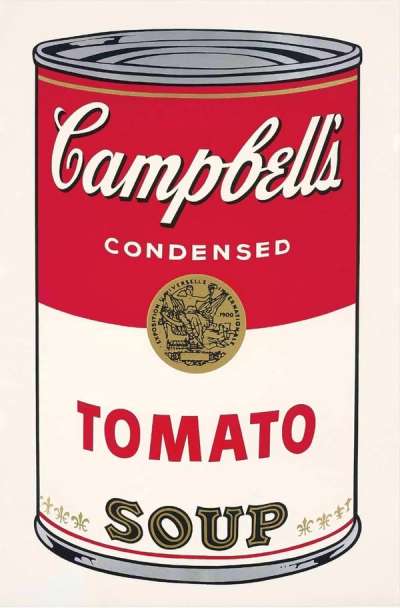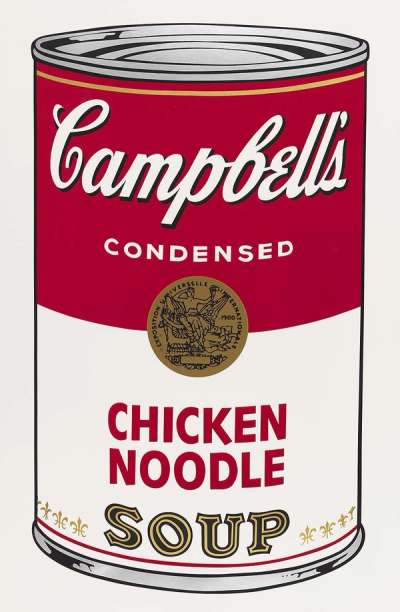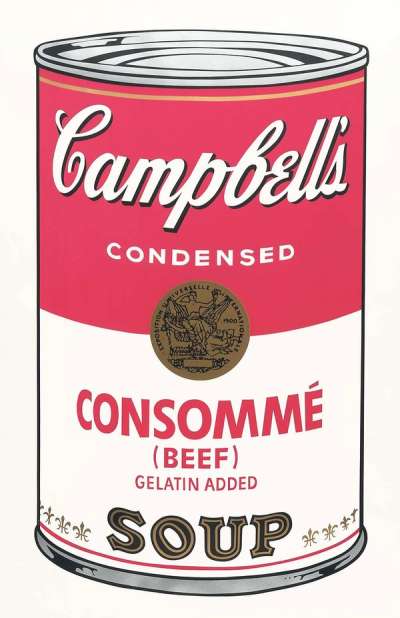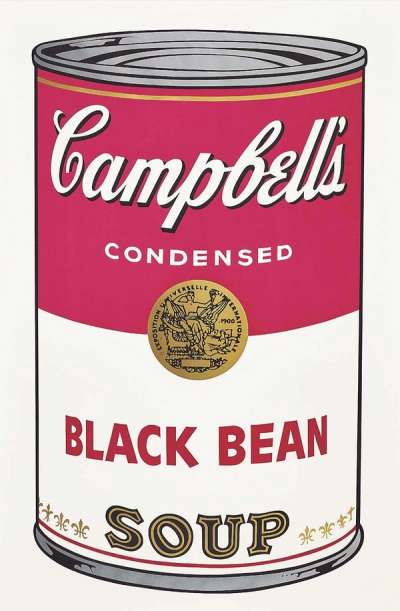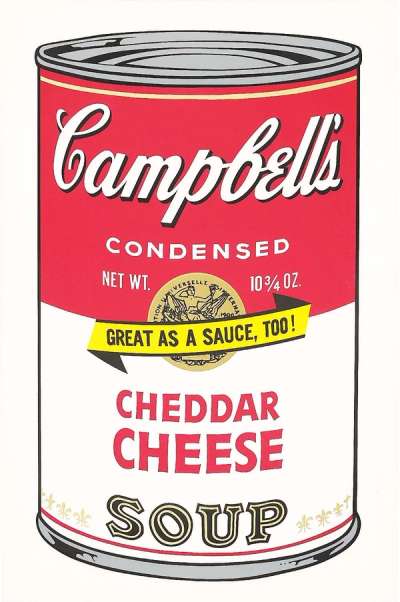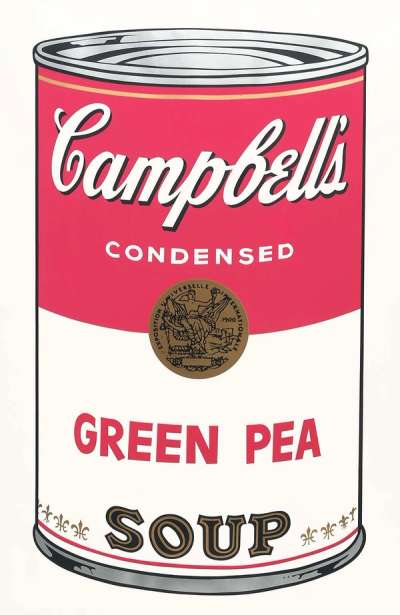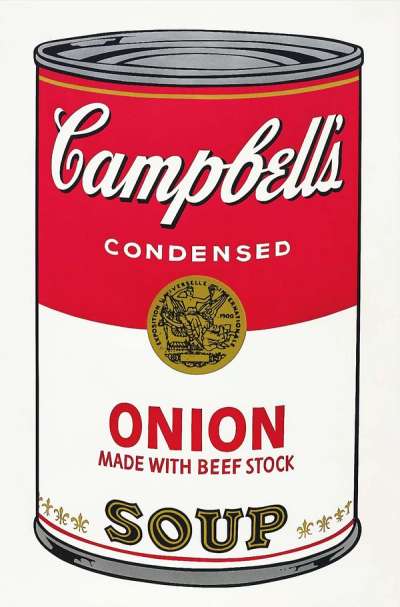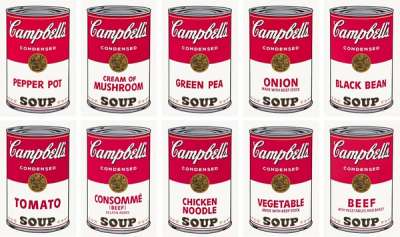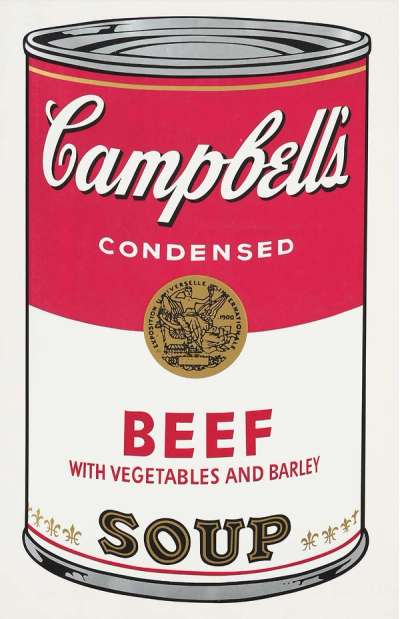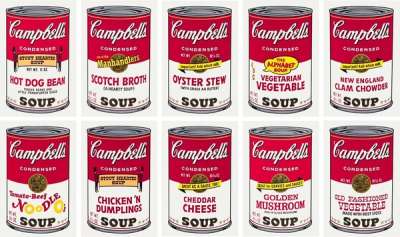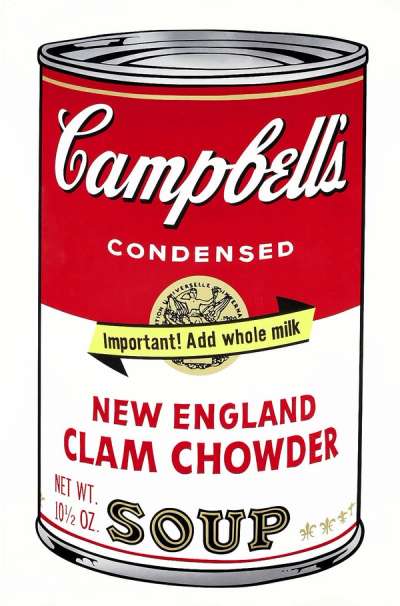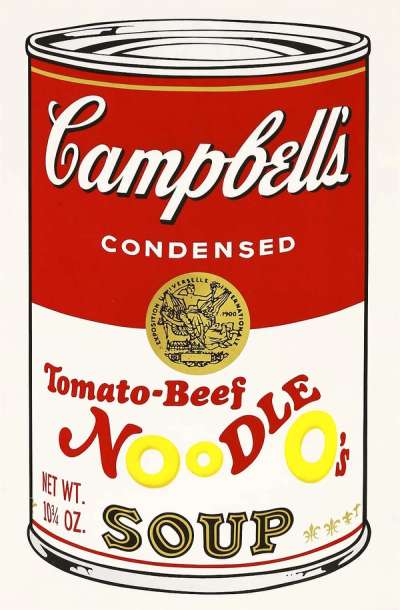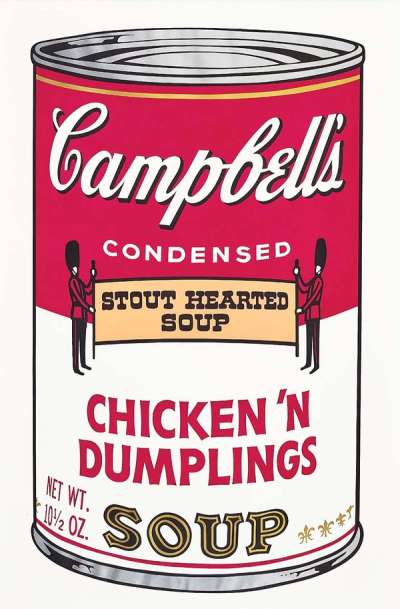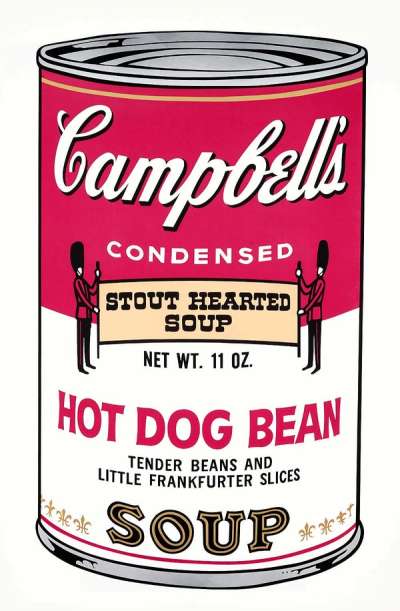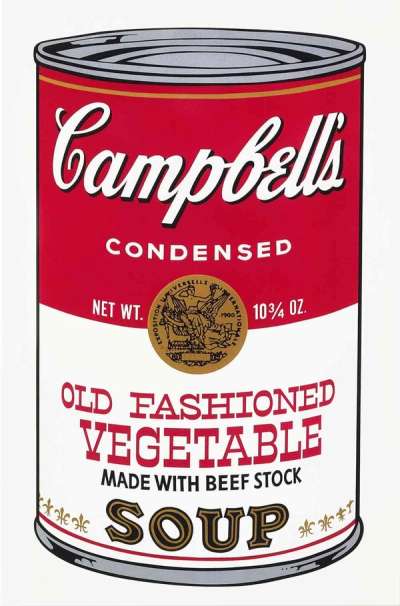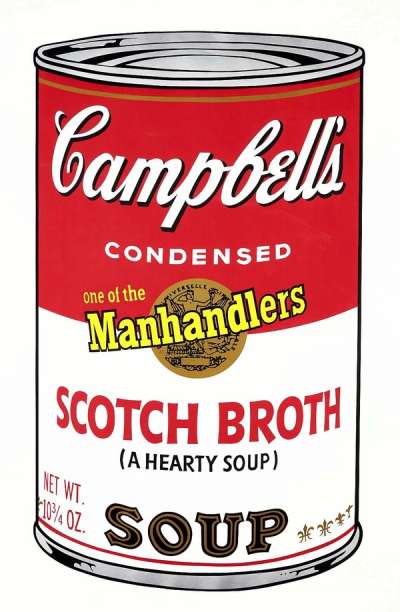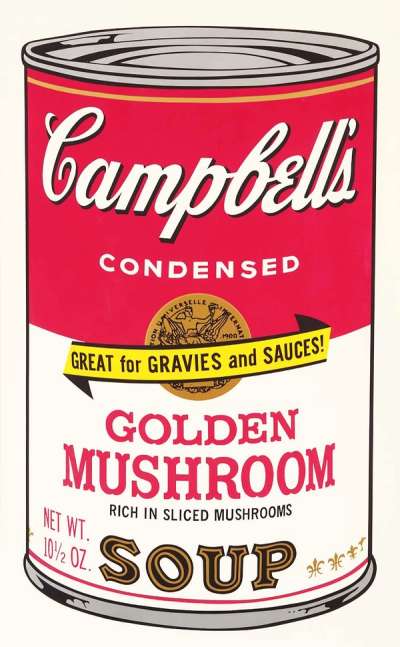
Campbell's Soup I, Cream Of Mushroom (F. & S. II.53)

Campbell's Soup I, Cream Of Mushroom (F. & S. II.53)
Signed Print
Andy Warhol
£25,000-£40,000
$50,000-$80,000 Value Indicator
$45,000-$70,000 Value Indicator
¥230,000-¥370,000 Value Indicator
€30,000-€50,000 Value Indicator
$250,000-$400,000 Value Indicator
¥4,940,000-¥7,910,000 Value Indicator
$30,000-$50,000 Value Indicator
AAGR (5 years) This estimate blends recent public auction records with our own private sale data and network demand.
There aren't enough data points on this work for a comprehensive result. Please speak to a specialist by making an enquiry.
Medium: Screenprint
Edition size: 250
Year: 1968
Size: H 89cm x W 58cm
Signed: Yes
Format: Signed Print
TradingFloor
Track this artwork in realtime
Watch artwork, manage valuations, track your portfolio and return against your collection
Meaning & Analysis
One of Andy Warhol’s most iconic motifs is featured in this screen print Campbell’s Soup I, Cream Of Mushroom (F. & S. II.53) from the Campbell’s Soup I series (1971). Throughout the 1960s Warhol had produced images of familiar consumer items such as Coca-Cola bottles and soup cans, one of the earliest examples being a series of paintings entitled Campbell’s Soup Cans appearing at the Fergus Gallery in Los Angeles in 1962. Pursued to the point of obsession, the Campbell’s Soup Cans were Warhol’s archetypal subject.
The Campbell’s Soup Cans paintings were first shown together in uniform rows, displayed as though they were products on the supermarket shelf. Each work represents every flavour of soup sold by Campbell’s Soup and the image itself precisely mimics the red and white labels of the brand. This print corresponds with the cream of mushroom flavour sold by the brand and shows a gold circular logo in the middle.
This series was one of the first portfolios to be published through Factory Additions, New York, a company the artist created to produce and distribute his prints. The prints were created by the machine-like screen print process, erasing the artist’s touch altogether and producing a precisely rendered image that exactly mimics the design of the soup can. Elevated to the realm of fine art and presenting these consumer products as objects for observation, Warhol poses a challenge to the value of art and the way art is consumed.
